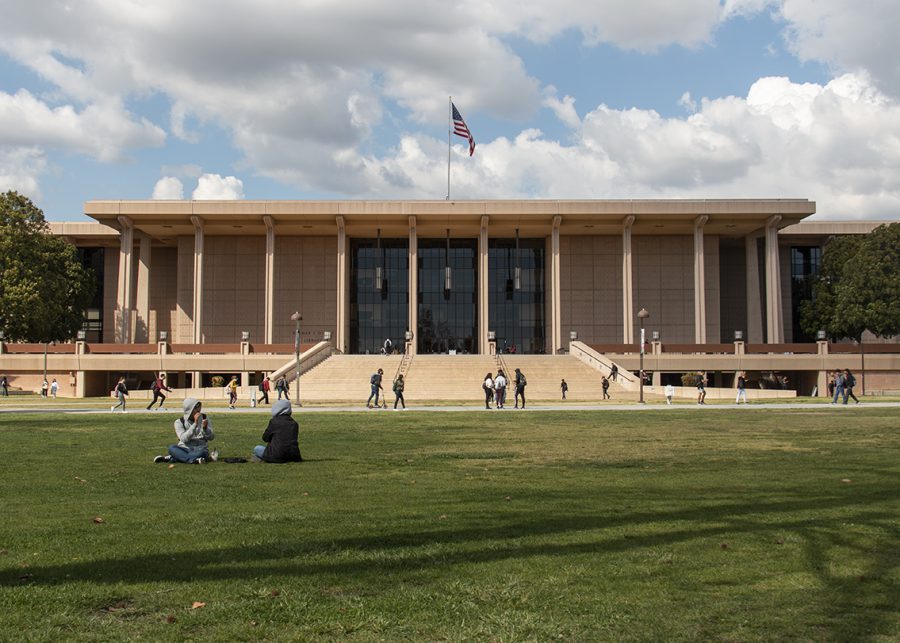CSUN to receive $44.6 million from CARES Act
The Delmar T. Oviatt library received its name in 1973 in honor of CSUN’s administrator Delmar T. Oviatt who served as Interim president in 1969. Oviatt died of a heart attack on December 24, 1971.
April 13, 2020
CSUN is set to receive $44.6 million in federal funding, according to a distribution plan released by the Department of Education on April 9. CSUN’s share is the largest allocation of any college campus in all of California.
$1.7 billion has been awarded to colleges and universities in California. This funding is part of approximately $14 billion allocated towards higher education, included in the Coronavirus Aid, Relief and Economic Security Act federal stimulus.
As per the federal government’s requirement, half of the award, $22.3 million, will go towards emergency financial aid grants for students.
According to an email sent out by President Dianne F. Harrison on April 10, the university will be communicating further details regarding student funding as funds become available.
“Of the $44 million directed to CSUN, half is designated for student support,” Harrison wrote. “As we learn more details, we will communicate how students can access these funds that are intended to help with student expenses related to COVID-19, including course materials and technology, as well as food, housing, health care and childcare.”
In an April 9 letter to college and university presidents, U.S. Education Secretary Betsy DeVos outlined the conditions of CARES Act funding usage.
“The CARES Act provides institutions with significant discretion on how to award this emergency assistance to students,” DeVos said. “This means that each institution may develop its own system and process for determining how to allocate these funds, which may include distributing the funds to all students or only to students who demonstrate significant need.”
“The only statutory requirement is that the funds be used to cover expenses related to the disruption of campus operations due to coronavirus (including eligible expenses under a student’s cost of attendance, such as food, housing, course materials, technology, health care, and child care),” DeVos wrote. “The most significant portion of that funding allocation provides that $12.56 billion will be distributed to institutions using a formula based on student enrollment.”
According to a press release from the Department of Education, federal funding to each campus relies on various factors — the number of full-time students, low-income students and the school’s total population.
“School allocations are set by formula prescribed in the CARES Act that is weighted significantly by the number of full-time students who are Pell-eligible but also takes into consideration the total population of the school and the number of students who were not enrolled full-time online before the coronavirus outbreak,” the press release stated. “The Department is utilizing the most recent data available from the Integrated Postsecondary Education Data System and Federal Student Aid for this calculation.”
CSUN is one of three California State University campuses receiving the most federal funding, alongside CSU Long Beach and CSU Fullerton. CSUN ranks seventh in the reward size among all higher education institutions in the country. CSULB and CSUF rank nine and 10. Arizona State University tops the list, receiving $63.5 million.
Editors Note: April 14, 2020: Story updated to correct college name from University of Arizona to Arizona State University.


